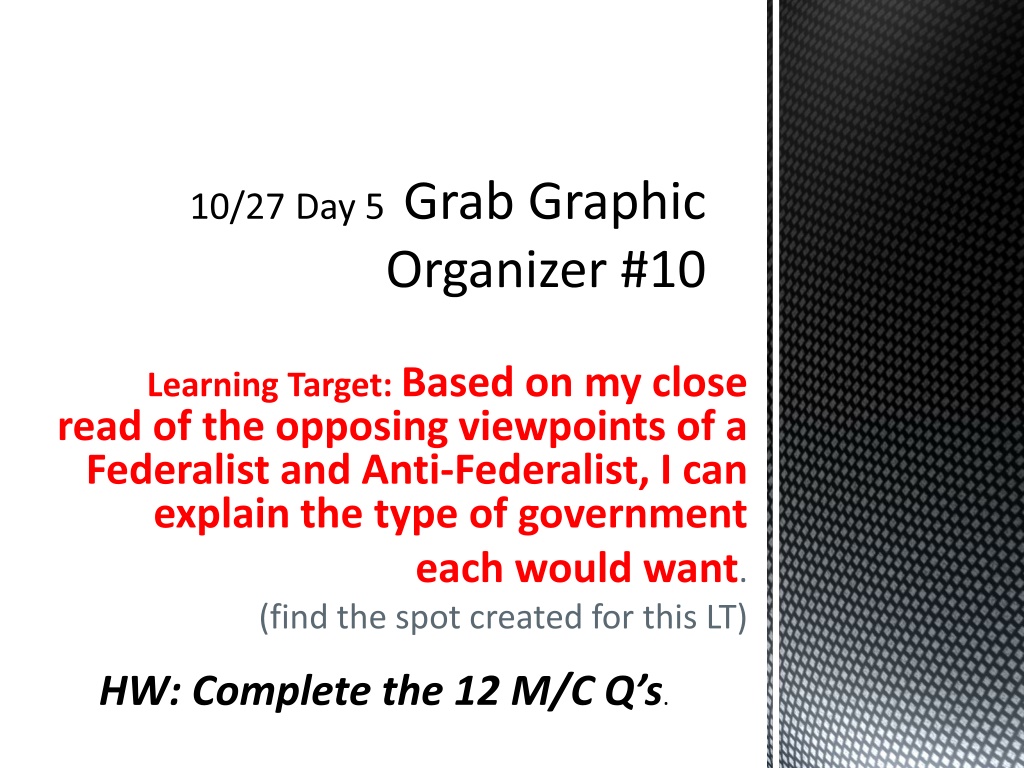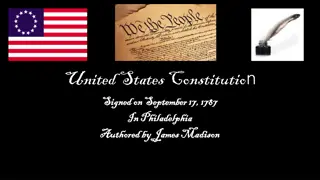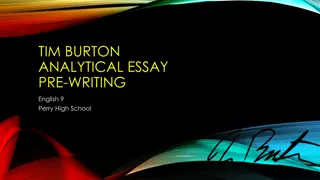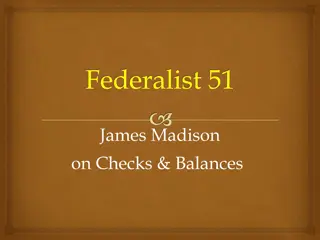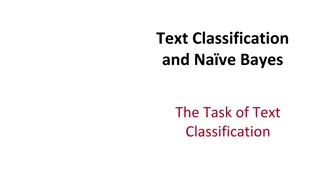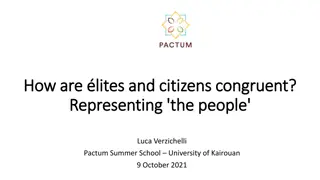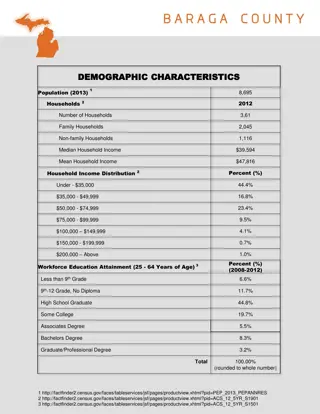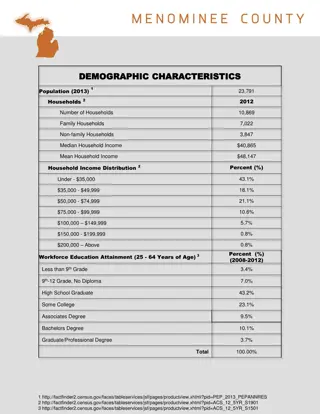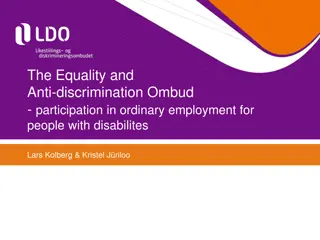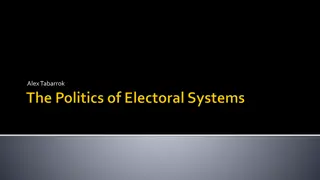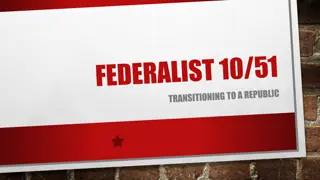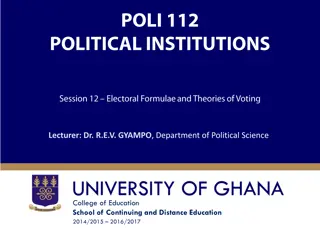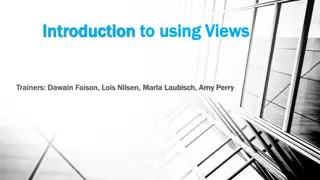Understanding Federalist and Anti-Federalist Views on Government Representation
The documents provided showcase the differing viewpoints of Federalist Alexander Hamilton and Anti-Federalist Melancton Smith on government representation in the context of the new Constitution. Hamilton argues for a system that does not prioritize wealth or education, while Smith emphasizes the need for a larger, more inclusive representation to prevent oppression by the rich. The graphic organizer prompts analysis of their positions and the societal groups likely to align with each viewpoint.
Download Presentation

Please find below an Image/Link to download the presentation.
The content on the website is provided AS IS for your information and personal use only. It may not be sold, licensed, or shared on other websites without obtaining consent from the author. Download presentation by click this link. If you encounter any issues during the download, it is possible that the publisher has removed the file from their server.
E N D
Presentation Transcript
10/27 Day 5 Grab Graphic Organizer #10 Learning Target: Based on my close read of the opposing viewpoints of a Federalist and Anti-Federalist, I can explain the type of government each would want. (find the spot created for this LT) HW: Complete the 12 M/C Q s.
10/28 Day 6- Take out HW #12 M/C- pull sticks. Using Documents A&B finish GO #11 Learning Target: Based on my close read of the opposing viewpoints of a Federalist and Anti- Federalist, I can explain the type of government each would want.
Document A: Anti-Federalist Position (Modified) Melancton Smith, June 21, 1788 Representatives should be a true picture of the people. They should understand their circumstances and their troubles. Therefore, the number of representatives should be so large that both rich and poor people will choose to be representatives. If the number of representatives is small, the position will be too competitive. Ordinary people will not attempt to run for office. A middle-class yeoman (farmer) will never be chosen. So, the government will fall into the hands of the few and the rich. This will be a government of oppression. The rich consider themselves above the common people, entitled to more respect. They believe they have the right to get anything they want.
Document B: Federalist Position (Modified) Alexander Hamilton, June 21, 1788 The Anti-Federalists seem to think that a pure democracy would be the perfect government. Experience has shown that this idea is false. The ancient democracies of Greece were characterized by tyranny and run by mobs. The Anti-Federalists also argue that a large representation is necessary to understand the interests of the people. This is not true. Why can t someone understand fifty people as well as he understands twenty people? The new constitution does not make a rich man more eligible for an elected office than a poor person. I also think it s dangerous to assume that men become more wicked as they gain wealth and education. Look at all the people in a community, the rich and the poor, the educated and the ignorant. Which group has higher moral standards? Both groups engage in immoral or wicked behavior. But it would seem to me that the behavior of the wealthy is less wicked and sinful.
Federalist and Anti-federalist Graphic Organizer Name______________ Document A: Anti-Federalists Melancton Smith Document B: Federalists Alexander Hamilton Is this person happy with how the new Constitution deals with representation? What kind of government would this person like to see? Find a quote to support your claim. Based on this document, what sort of people in society would support this point of view?
Write up some Differences between these Political Groups FEDERALIST ANTI- FEDERALIST
FEDERALIST James Madison, John Jay, Alexander Hamilton, John Adams (FEDERALIST PAPER) ANTI-FEDERALIST Thomas Jefferson (BILL OF RIGHTS NEEDED) Small farmers, shopkeepers, laborers Property owners, wealthy, and merchants Believed in EGALITARIANISM- equality-all should have opportunity to participate. Stronger state government (Smaller districts) Believed in ELITISM, the elite should rule, strong central gov t (1 rep- 30,000) Manufacturing and trade Agrarian or farming
Schoolhouse Rock-I'm Just a Schoolhouse Rock-Preamble Bill
